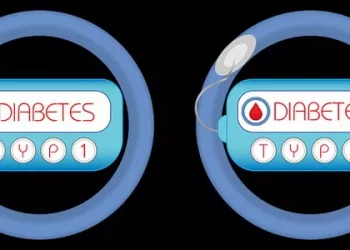Canada’s escalating diabetes crisis demands more than just bans on sugary drinks; it calls for a fundamental shift in our relationship with food. According to Joe Benge, addressing the root causes of the diabetes epidemic involves not only what we eat, but also how, when, and how often we eat.
Obesity and Pre-Diabetes: A Growing Problem
Approximately 30% of Canadian adults are obese, and this figure does not account for undiagnosed cases or the concerning rise of pre-diabetes in children. These statistics are a clear indication that many Canadians are trapped in a cycle of unhealthy eating habits, which is contributing to a growing health crisis.
The Impact of Processed Foods and Snacking
A large portion of the population is consuming highly processed foods that are designed for taste, not nourishment. These products are typically stripped of essential nutrients and fiber, while being loaded with sugar, refined starches, and inflammatory seed oils. The result is that they disrupt natural hunger cues, causing individuals to snack frequently.
Frequent snacking and overeating trigger repeated insulin spikes. Over time, this can lead to insulin resistance, forcing the pancreas to work harder. This chronic strain on the pancreas is a direct path to developing type 2 diabetes.
Time-Restricted Eating: A Simple, Effective Strategy
To help combat these issues, Benge advocates for time-restricted eating, a strategy that allows the body to rest between meals. By eating within a specific window, such as 10 a.m. to 6 p.m., the body’s insulin levels can drop during non-eating periods. This allows the body to burn fat instead of storing it, improving insulin sensitivity, aiding weight control, and promoting cellular repair.
Time-restricted eating isn’t about extreme diets or starvation; it’s about optimizing natural metabolic processes for better health.
The Role of Carbs and Fats in Diabetes Prevention
Another key factor in preventing diabetes is the reduction of refined carbohydrates. Benge emphasizes that it’s the overconsumption of glucose, especially from processed carbs, that drives obesity and metabolic diseases—not dietary fat. Healthy fats from whole foods like avocados, nuts, olive oil, and fish are crucial for hormone production, brain health, and satiety.
In contrast, processed seed oils—often found in packaged foods—are chemically extracted and pro-inflammatory, contributing to a variety of health problems.
A Cultural Shift Toward Better Food Habits
To address the diabetes crisis at its core, Benge calls for a cultural shift:
-
Move from processed foods to whole, nutrient-dense foods.
-
Limit meals to two or three times per day, with no snacks in between.
-
Adopt time-restricted eating patterns to give the pancreas time to rest.
-
Reduce refined carbs and added sugars.
-
Prioritize healthy fats and proteins.
These simple principles, whether on a plant-based, animal-based, or omnivore diet, can help improve overall health and reduce the risk of type 2 diabetes.
A Public Health Issue
By making these small changes, Canadians could drastically reduce the incidence of type 2 diabetes, ease the burden on the healthcare system, and extend healthy, productive lives. This issue goes beyond individual responsibility—it’s a public health concern that requires broad societal education and a shift in food habits.
It’s time to move the conversation past sugary drinks and focus on the larger issue: the food habits that fuel disease. With better education and awareness, we can all contribute to a necessary “food awakening” that prioritizes health over convenience.
Related topics:
Where Can I Get a Blood Sugar Test?

























